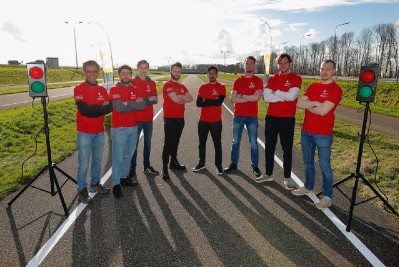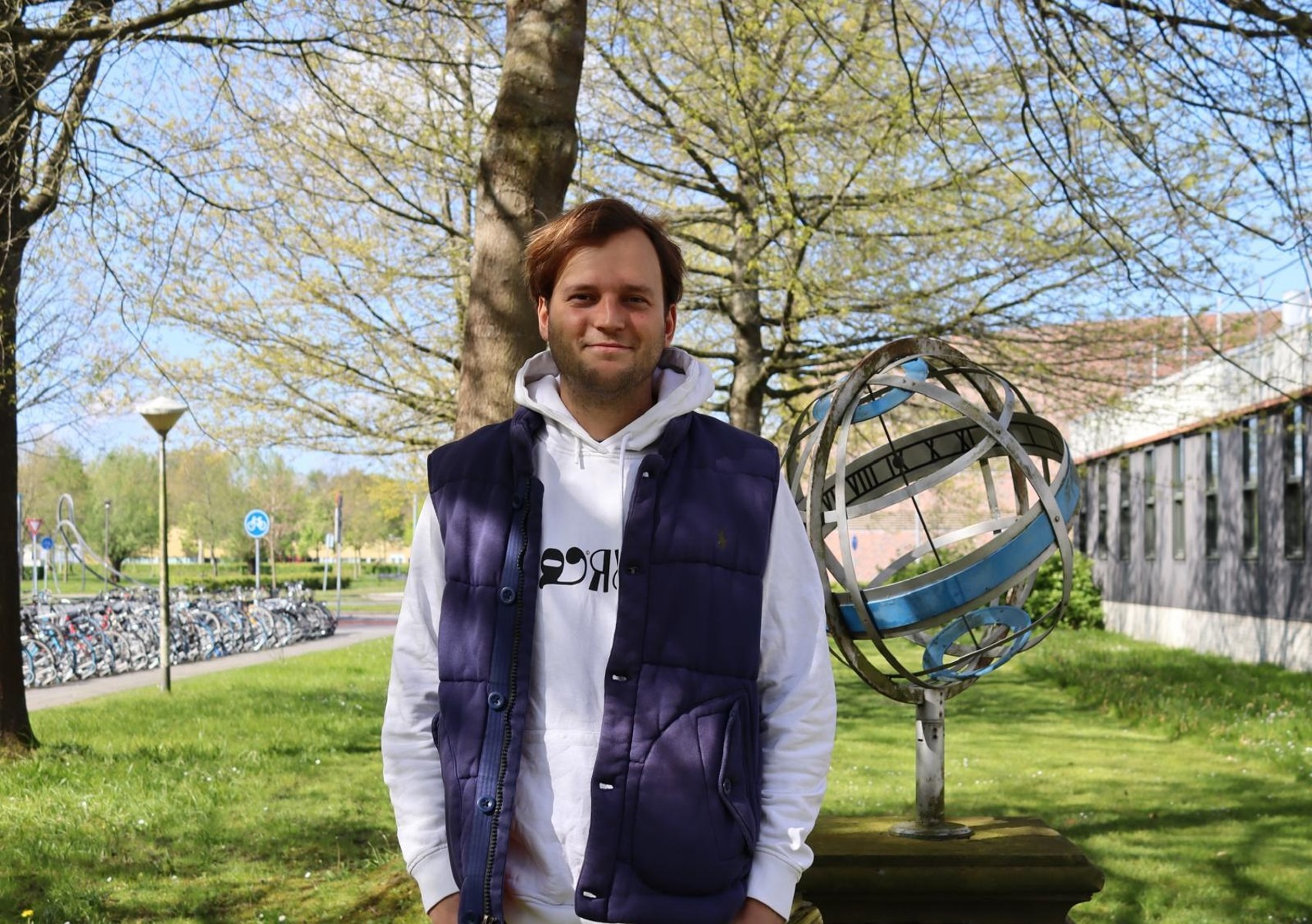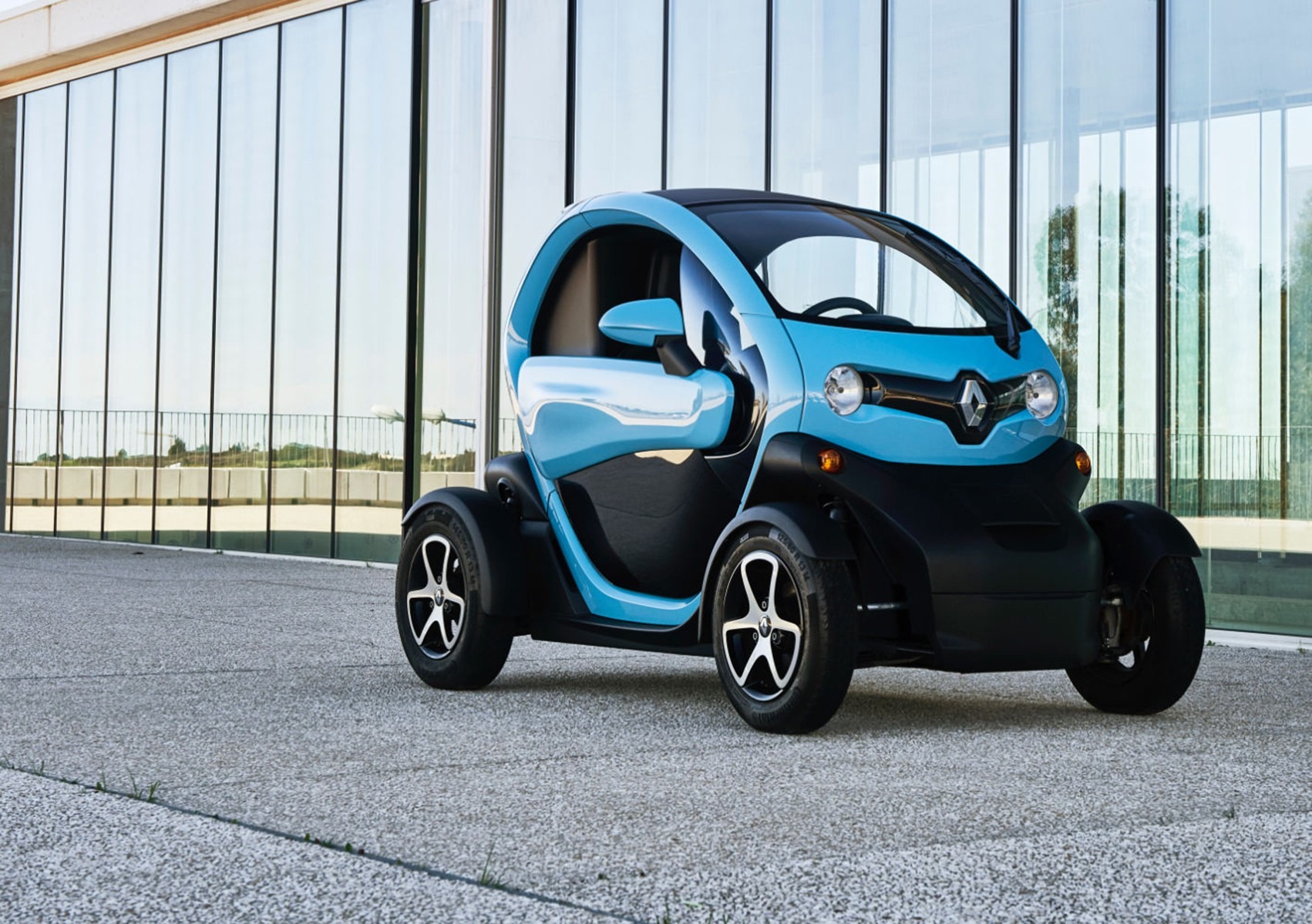Students study possibilities of self-driving car

A group of thirteen students of the UG, Hanze UAS and Noorderpoort will compete this year in the RDW Self Driving Challenge (SDC) on 14 June. Contrary to last year, the students of the three educational institutions now form a team together, under the name University of the North. In addition, this year, they will participate in a new category in which they have to provide a car themselves. Team leader Stijn Kram explains more about this challenge and the preparation.
Text: Froukje Duursema, Corporate Communication UG
Through the middle of Amsterdam
‘In the United States, there are already many self-driving cars on public roads, but this is more difficult to realize here, because the Netherlands is highly populated. That is the main reason for this challenge, to study what kind of problems we will likely face with self-driving cars in the Netherlands. During a workshop, for example, the Netherlands Vehicle Authority (RDW) showed us a video of a car crossing a road near the canals in Amsterdam. For a self-driving car to safely cross such a road is quite a challenge.’ Public transport is also an interesting topic for the RDW. ‘For example, some places in the countryside are not easily accessible. An autonomous vehicle could be the solution for these areas, because they are usually less crowded and there would be no need to hire additional staff.’

Self Driving Challenge
Every year, the RDW organizes the Self Driving Challenge. The aim of the challenge is to acquire knowledge about the complicated technology that is involved in automated decision-making in self-driving cars. Student teams have to develop software (and hardware) in order to carry out the different tasks in the competition.
A number of challenges
This year, the competition will take place in Lelystad on a special track of the RDW test centre. Since February, the Groningen team has had the opportunity to test the car on the new track. The team will have to complete six tasks: starting at a green traffic light, staying within the speed limit, stopping and starting at a traffic light, stopping for a pedestrian crossing, carrying out an overtaking manoeuvre, and parallel parking.
In addition to these six tasks, there is another challenge in the open category in which the team participates. Contrary to the closed category, where the RDW delivered a go-kart and a computer, the team will now have to provide a car itself. Through sponsors, the team received a Renault Twizy to work with, a small two-seated car. ‘We are very happy with this, because five months is a short time to build a car and write an algorithm. Furthermore, most of us are participating in the project voluntarily in addition to our studies, so working on the car is not easy.’

Behind the scenes
The team is led by Professor Bayu Jayawardhana. Within the team, there are three sub-teams to make the collaboration as efficient as possible. ‘We have an AI team that is writing an algorithm for objects to be recognized. These include, for example, a parking space or a pedestrian crossing, but also a stationary car that needs to be overtaken. We also have a control team. This team consists of Systems and Control students who are writing a ‘control algorithm'. They make sure, among other things, that the car does not exceed the speed limit if the traffic sign indicates a speed limit of 20. Finally, we also have a team of software engineers. They make sure all these elements are combined, that the whole software package is ready, and that the data flows are accurate.’
Meanwhile, Kram himself is working on his Master's degree in Mechanical Engineering. He studies the energy transition through new technologies, such as solar panels and hydrogen. As team leader in the SDC, Kram mainly works behind the scenes: ‘I organize the team activities, such as meetings, but also the activities that involve beers and games. I also stay in contact with the sponsors and I organize the external communication. Recently, for example, a camera crew filmed us to capture the collaboration of the University of the North.’
More information
Click here for more information on the RDW Self Driving Challenge.
| Last modified: | 04 June 2024 11.06 a.m. |
More news
-
03 April 2025
IMChip and MimeCure in top 10 of the national Academic Startup Competition
Prof. Tamalika Banerjee’s startup IMChip and Prof. Erik Frijlink and Dr. Luke van der Koog’s startup MimeCure have made it into the top 10 of the national Academic Startup Competition.
-
01 April 2025
NSC’s electoral reform plan may have unwanted consequences
The new voting system, proposed by minister Uitermark, could jeopardize the fundamental principle of proportional representation, says Davide Grossi, Professor of Collective Decision Making and Computation at the University of Groningen
-
01 April 2025
'Diversity leads to better science'
In addition to her biological research on ageing, Hannah Dugdale also studies disparities relating to diversity in science. Thanks to the latter, she is one of the two 2024 laureates of the Athena Award, an NWO prize for successful and inspiring...
